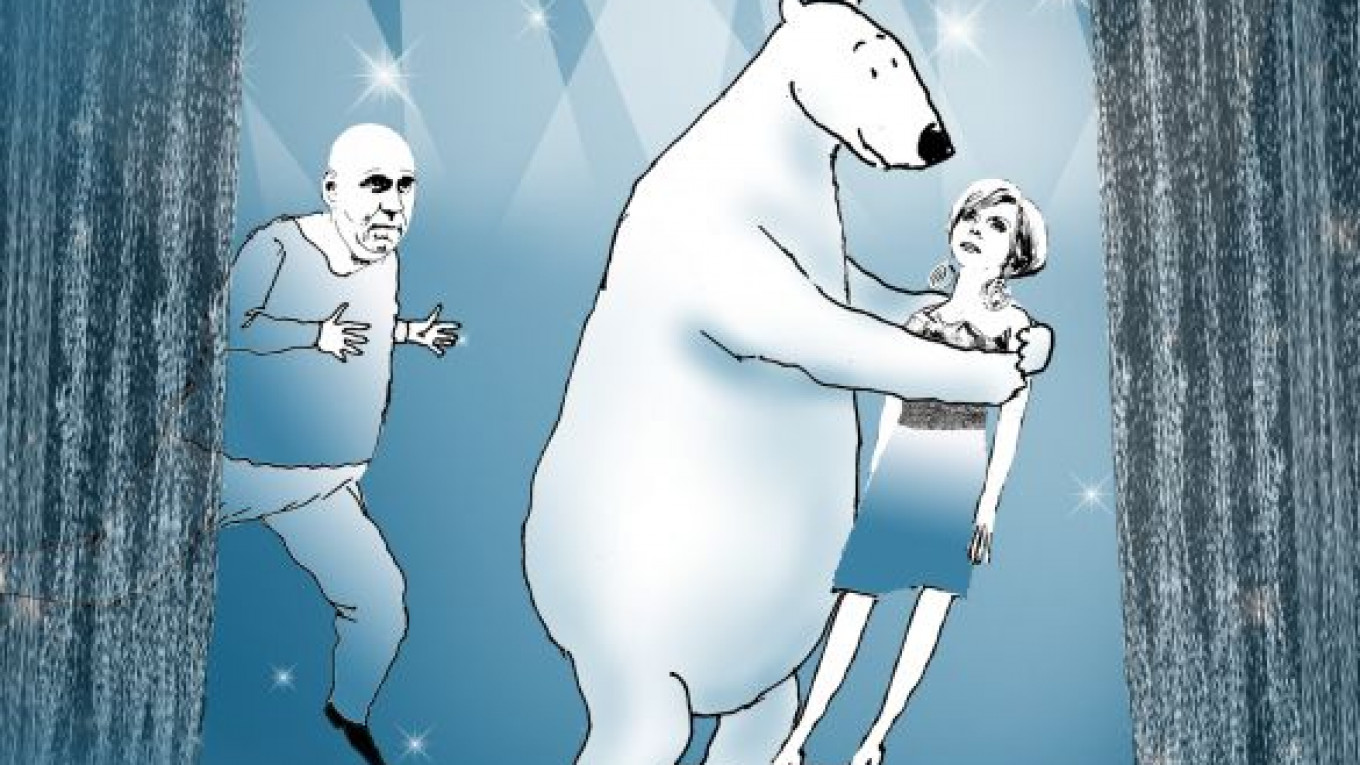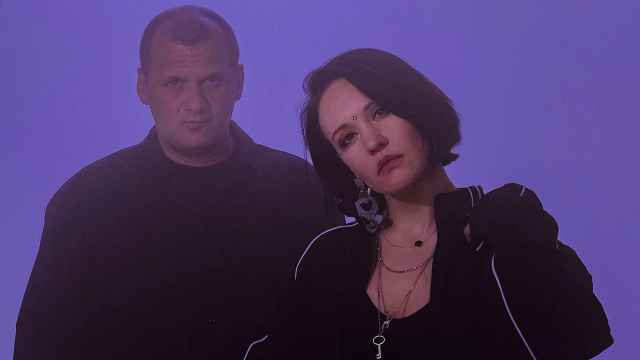This week, blond pop singer Valeria became an unlikely dissident, as her husband and producer, Iosif Prigozhin, complained in an interview with Radio Liberty that United Russia had hijacked one of her concerts to electioneer from the stage.
Prigozhin said a fan came on stage with a bunch of flowers and then unexpectedly started singing the praises of the ruling party.
He said the public was not at all happy, since they “thought the artist had deceived them. They paid their money and found themselves at a campaigning event.”
The incident was first revealed by rocker Andrei Makarevich in an interview with Moskovsky Komsomolets about his own woes. The musician, who has been photographed hobnobbing with President Dmitry Medvedev, recently complained of a similar thing happening in Kemerovo. Party members came on stage on Nov. 3, said the concert was held with the support of United Russia and gave the musicians medals, with the public loudly booing and whistling them. Makarevich colorfully complained in his blog of being “screwed over without warning.” The video on YouTube has been watched more than 400,000 times. A hapless United Russia member stumbles as he says first the concert is “in support” and then “supported by” the party. One man can be clearly heard shouting “Give us back our money for the tickets!” but there is also some applause.
The conduct of the party member was “absolutely incorrect and unethical,” Prigozhin said, sounding more angry than he has been since Valeria lost the Eurovision heats in 2009.
Pop and rock stars are hardly separate from the establishment in Russia. They have given major support to political parties, notably in Boris Yeltsin’s 1996 election campaign, and take to the stage on Red Square for public holidays and to the Kremlin Palace concert hall for official knees-ups such as the annual Policemen’s Day.
Prigozhin didn’t reveal the city, but said they were touring a region where people were “not at all for United Russia.”
Bizarrely, he added that in Omsk, the posters they paid for had all been taken down and replaced with United Russia ones showing President Dmitry Medvedev and Prime Minister Vladimir Putin.
Valeria has promoted herself in the West in a doomed attempt to become as popular there as here. She even got called the “Russian Madonna” by the Independent, although she has a squeaky-clean image.
Unusually for an absolutely apolitical figure, Prigozhin said he and his wife did not support United Russia. “We are not against the United Russia party, but we are not for it, either.”
“We have our political views, our preferences, but we don’t express them out loud. We will express them by the ballot box, silently,” he said.
Oddly enough, United Russia blamed the opposition. A party official, Ruslan Gattarov, told Radio Liberty that an “ordinary incident” had been blown up on the Internet in a deliberate “provocation.”
Comments on the radio’s web site were mixed, with some saying Prigozhin had the right to be apolitical and others saying he was being hypocritical since he had publicly praised Putin and that many artists rely on Kremlin concerts.
In 2007, Kommersant included a quote from Prigozhin in its list of the most “toadying” comments about Putin. “For the first time, a person has appeared in our country whom we can not only be proud of but we can marvel at,” he said in an interview with the Komsomolskaya Pravda tabloid.
A Message from The Moscow Times:
Dear readers,
We are facing unprecedented challenges. Russia's Prosecutor General's Office has designated The Moscow Times as an "undesirable" organization, criminalizing our work and putting our staff at risk of prosecution. This follows our earlier unjust labeling as a "foreign agent."
These actions are direct attempts to silence independent journalism in Russia. The authorities claim our work "discredits the decisions of the Russian leadership." We see things differently: we strive to provide accurate, unbiased reporting on Russia.
We, the journalists of The Moscow Times, refuse to be silenced. But to continue our work, we need your help.
Your support, no matter how small, makes a world of difference. If you can, please support us monthly starting from just $2. It's quick to set up, and every contribution makes a significant impact.
By supporting The Moscow Times, you're defending open, independent journalism in the face of repression. Thank you for standing with us.
Remind me later.






